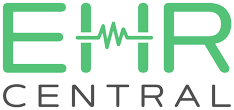EHR Interoperability: The Key to Value-Based Care
In today’s healthcare ecosystem, value-based care has become the gold standard rewarding providers for quality, not quantity, of care. Yet, achieving this model depends heavily on one crucial element: EHR interoperability. When electronic health records can

seamlessly communicate across systems, healthcare teams can deliver coordinated, efficient, and patient-centered care.
What Is EHR Interoperability?
EHR interoperability refers to the ability of different electronic health record systems to exchange, understand, and use patient data effectively. It ensures that no matter where a patient receives care, their health information follows them from primary care visits to specialists and hospitals.
The Link Between Interoperability and Value-Based Care
Value-based care focuses on improving outcomes, reducing costs, and enhancing patient experiences. EHR interoperability directly supports these goals by:
- Reducing duplication of tests and procedures through shared access to patient histories.
- Enhancing care coordination, ensuring every provider has up-to-date information.
- Enabling data-driven decision-making, helping providers measure and improve performance metrics tied to value-based reimbursement models.
- Improving patient engagement, allowing individuals to access their health data and making informed decisions.
Benefits of Interoperable EHR Systems
- Better Patient Outcomes: Seamless information exchange helps clinicians make timely, accurate decisions.
- Operational Efficiency: Streamlined workflows reduce administrative burdens and save time.
- Lower Healthcare Costs: By avoiding redundant tests and minimizing errors, organizations can significantly cut costs.
- Enhanced Population Health Management: Aggregated data enables better tracking of health trends and proactive interventions.
Challenges to Achieving Interoperability
Despite its importance, achieving full interoperability remains complex. Barriers include data silos, differing EHR standards, and privacy concerns. However, initiatives like FHIR (Fast Healthcare Interoperability Resources) and government-driven frameworks are accelerating progress toward a connected health ecosystem.
The Future of Value-Based Care Depends on Interoperability
As healthcare continues to shift toward value-based models, EHR interoperability isn’t just an advantage, it’s a necessity. Organizations that embrace interoperability will be better positioned to improve patient satisfaction, achieve cost efficiency, and deliver measurable health outcomes.
In essence, interoperability bridges the gap between technology and care delivery, unlocking the full potential of value-based care.





